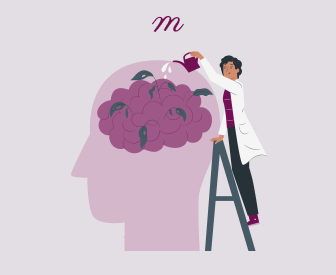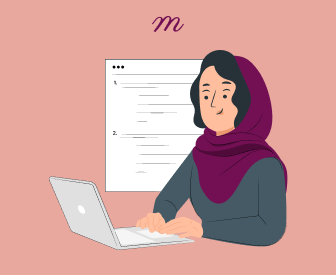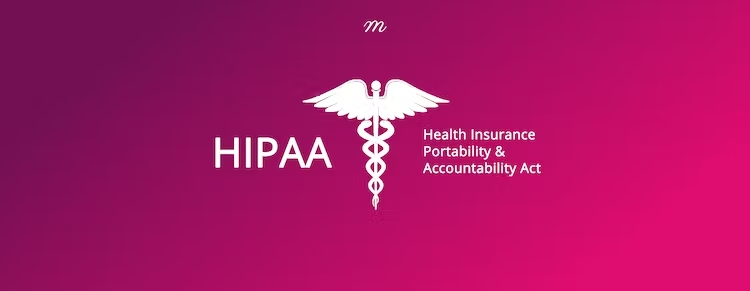Have your progress notes written for you automatically
A sometimes-overlooked skill, note-taking can significantly impact the quality of mental health professionals’ work. Effective notetaking helps psychologists:
- organize their thoughts and observations.
- provide better client care.
- conduct research.
- maintain professional records.
This article explores several techniques and best practices for note-taking that are tailored to the specific needs of psychologists.
The Importance of Note-taking for Psychologists
Psychologists manage vast amounts of information that includes data obtained through clinical interviews, therapy sessions, research studies, assessments, and more. Meticulous note-taking is critical for the following reasons.
Legal and Ethical Obligations
Psychologists often deal with sensitive and confidential information, so ethical and legal standards emphasize the importance of maintaining patient confidentiality and privacy. To safeguard the practitioner from potential legal liabilities, thorough and organized note-taking is essential. Here are the reasons why:
- Protecting Client Privacy. Clients must feel safe and secure when discussing private matters with mental health professionals. The knowledge that personal information is handled with care and discretion encourages open and honest communication. Inaccurate or incomplete notetaking could lead to breaches of privacy, damaging the therapeutic relationship.
- Legal and Ethical Issues Psychologists are bound by laws such as the Health Insurance Portability and Accountability Act (HIPAA) in the United States. In addition, they must adhere to ethical codes established by professional organizations like the American Psychological Association (APA). Failure to protect clients’ confidential information can result in legal consequences and professional sanctions.
- Treatment Planning and Progress Monitoring. Accurate and organized notes are a must for effective treatment planning and tracking clients’ progress over time. Referring to detailed notes allows practitioners to make informed decisions regarding treatment strategies and interventions. Well-written notes ensure that the clinician tailors their approach to best meet the client’s needs.
- Risk Management. Sometimes clients pose a risk to themselves or others. In these situations, thorough and organized notes are invaluable because they help clinicians assess the level of risk, make appropriate referrals, or take steps to protect the client or others while remaining in compliance with legal and ethical standards.
- Communication and Collaboration. Psychologists often collaborate with other professionals, such as social workers or school personnel, as part of the treatment team. Comprehensive notes allow for effective communication and the sharing of essential information between professionals, promoting a better understanding of a client’s needs.
- Legal Documentation. In the event of a legal dispute or an ethical complaint, well-written notes serve as a necessary defense for the psychologist, demonstrating that the practitioner acted in accordance with established standards of care and confidentiality – ultimately protecting them from potential legal liabilities.
Quality of Care
In clinical settings, psychologists offer mental health care to their clients. This involves conducting therapy sessions, completing assessments, treatment planning, and maintaining accurate and organized records. The importance of notes cannot be overstated, as they play a pivotal role in ensuring the client receives the best mental health care possible. Here’s why:
- Continuity of Care. Progress notes act as a continuity bridge between sessions and providers. They help psychologists recall important details about a client’s history, which is particularly important when dealing with complex cases or when multiple mental health professionals are involved in the client’s care.
- Individualized Treatment. Each client’s treatment should be tailored to their unique needs and circumstances. Accurate and organized records allow psychologists to track the patient’s progress, making it possible to revise treatment plans and interventions to better suit the client’s needs. Without meticulous documentation, it is challenging to provide individualized and effective care.
- Diagnosis and Assessment. Psychologists conduct assessments and diagnose mental health conditions, so progress notes that document symptoms, history, and responses to assessments aid in making accurate diagnoses. Inaccurate or disorganized records may lead to misdiagnosis or delayed treatment.
- Treatment Planning. Treatment plans are a roadmap, incorporating therapeutic techniques, interventions, goals, and strategies. Well-written notes help psychologists create effective treatment plans and ensure that the plans are consistently followed – maximizing the chances of therapeutic success.
- Communication with Colleagues. Psychologists often work as part of a multidisciplinary team, and effective communication with other professionals (such as psychiatrists, social workers, nurses, and more) is essential. Progress notes provide a common language and understanding for all team members, ensuring coordinated care, and minimizing the risk of misunderstandings or miscommunications.
- Research and Evaluation. Organized notes contribute to the broader field of psychology, in that researchers and clinicians use aggregated and anonymized data from client records to advance scientific knowledge, develop evidence-based practices, and improve the quality of care in the field.
- Ethical and Legal Compliance. Psychologists are bound by ethical standards and legal obligations to provide quality care. Clear and organized notes demonstrate that these standards are being met, which is not only a professional responsibility but also a legal requirement in many locations.
The following are techniques and best practices that can enhance psychologists’ notetaking capabilities.
Note-taking Techniques
- Structured Notetaking. One effective technique is to use structured templates when taking notes, ensuring that essential information is consistently captured across sessions. Here are a few templates that can be useful:
- Clinical Assessment Notes. Having a standardized template for recording client assessments can be invaluable. This template might include sections for client demographics, presenting concerns, assessment results, and treatment plans.
- Research Observation Templates. Researchers can use templates that include sections for noting research objectives, data collection methods, and findings. Structured templates streamline the research process, ensuring consistency.
- Meeting Notes. Psychologists frequently participate in meetings with colleagues, supervisors, or research teams. Having a standard template for meeting notes allows professionals to identify action items, formulate decisions, and outline follow-up tasks.
2. Mind Mapping. This visual note-taking technique is particularly useful when dealing with complex topics or research projects. By creating a mind map, psychologists chart out relationships between ideas, concepts, and data points. Mind maps help with brainstorming, organizing thoughts, and identifying patterns within the data. Use the following steps to create a mind map.
- Start with a central idea or concept in the center of the page.
- Branch out from the central idea with subtopics or related concepts.
- Use lines and arrows to connect ideas and show relationships.
- Include keywords, phrases, or brief descriptions for each node on the map.
Mind maps are a powerful tool for visual learners and can help psychologists see the bigger.
3. The Cornell Method. This note-taking system helps psychologists structure their notes effectively, making it easier to review them later. It involves dividing a sheet of paper into three sections:
- The right column (approximately 2.5 inches wide) is used to take notes during a lecture, session, or research activity.
- The left column (approximately 2 inches wide) is used for writing down questions, keywords, or prompts related to the notes on the right side.
- The bottom section is used to summarize the main points or takeaways from the notes.
The Cornell Method promotes active engagement with the material and facilitates efficient review, making it an excellent choice for psychologists who need to process and understand complex information.
4. Electronic Notetaking. Many psychologists choose digital notetaking using tools like Evernote, Microsoft OneNote, or dedicated EHR (Electronic Health Record) software. Electronic notetaking offers several advantages, including the following:
- Digital notes can be easily searched, making it quicker to locate specific information within a vast database of notes.
- Synchronization. Many electronic note-taking tools allow synchronization across devices, ensuring that notes are accessible anywhere, anytime.
- Multimedia Integration. Psychologists can easily incorporate audio recordings, images, and video clips into their notes for a more comprehensive record.
Be mindful of data security and privacy when using electronic notetaking methods, especially in clinical settings where client information must be protected.
Best Practices for Psychology Notetaking
While there are many techniques for taking notes, these best practices can enhance quality and effectiveness:
Be Consistent. When psychologists consistently use a specific format, template, or method, it becomes a habit, making the notetaking process smoother and more efficient. Consistency also aids in organizing and retrieving information.
Focus on the Essentials. Not every piece of information is equally important. Prioritizing key information ensures that notes remain clear, concise, and relevant. Avoid the temptation to transcribe everything verbatim and instead focus on capturing essential points, main ideas, and significant findings. This not only saves time but also enhances understanding and retention of the most critical information.
Use Abbreviations and Shorthand. Developing a personal set of abbreviations and shorthand can significantly enhance speed and efficiency. Unique abbreviations should be meaningful, allowing the clinician to capture information more quickly while maintaining clarity and accuracy.
Stay Organized. Systematically organizing progress notes is crucial for ease of navigation and comprehension. Use headings, subheadings, bullet points, or numbering to create a clear and logical hierarchy. Consider tagging or labeling notes with keywords or categories to facilitate later retrieval.
Review and Summarize. After each session, review progress notes and summarize the main points and key takeaways. This reflective process enhances understanding and retention of the information. It also aids in synthesizing complex ideas and distilling them into manageable insights.
Back-Up Progress Notes. Data loss can be catastrophic, so consider using secure cloud storage or an external storage device. Additionally, use encryption to protect sensitive information within progress notes, ensuring the data remains safe and confidential.
Protect Confidentiality. In clinical settings, maintaining strict confidentiality is paramount. Ensure that progress notes are stored securely, and access should be limited only to authorized personnel. Compliance with privacy regulations and guidelines is vital, and breaches of confidentiality can have legal and ethical consequences.
Develop a Follow-Up System. If progress notes contain action items or follow-up tasks, create a system for tracking and completing each task. This ensures that important tasks are not overlooked, helping with organization and accountability. Explore task management tools or integrate follow-up actions into daily workflow.
Continuous Learning. There is always room for improvement in writing effective, clear, and concise progress notes. Professionals in the mental health field are continually learning and evolving, so periodically revisiting notetaking methods allows for continuous improvement. Identify tools and technologies that can boost efficiency, adapt to changing needs, and stay up to date with the best practices in the field of psychology. Be open to evolving and refining notetaking techniques as knowledge and the work environment evolves.
Other Helpful Tools
In the digital age, mental health professionals can save a great deal of time by accessing tools to help them take effective progress notes. Psychologists can use generative AI tools such as Mentalyc, which will save them time with the documentation process. Mentalyc allows them to record sessions and transcribe progress notes in less than two minutes – increasing clarity, accuracy, and efficiency – all while providing details clinicians might otherwise miss. Psychologists can try this tool by signing up for Mentalyc.
Conclusion
Efficient note-taking is an essential skill within the field of psychology, wielding a significant influence on the efficacy and precision of professional practice. The quality of progress notes holds the potential to elevate the quality of psychological services rendered. By embracing structured techniques and unwavering dedication to established best practices, psychologists can continuously enhance their notes.
The value of note-taking transcends mere documentation, as it is an asset that enables psychologists to analyze emerging trends and formulate evidence-based strategies for intervention and treatment. Well-written progress notes serve as navigational guides, leading to more informed decision-making and a higher standard of care.
Psychologists must understand that the craft of proficient note-taking is a skill that is refined over time with deliberate practice. This ongoing commitment to honing notetaking abilities transforms clinicians into more astute and knowledgeable practitioners. The pursuit of excellence in notetaking is an investment in professional growth and a testament to the unwavering commitment to the well-being of the clients served.
Disclaimer
All examples of mental health documentation are fictional and for informational purposes only.










